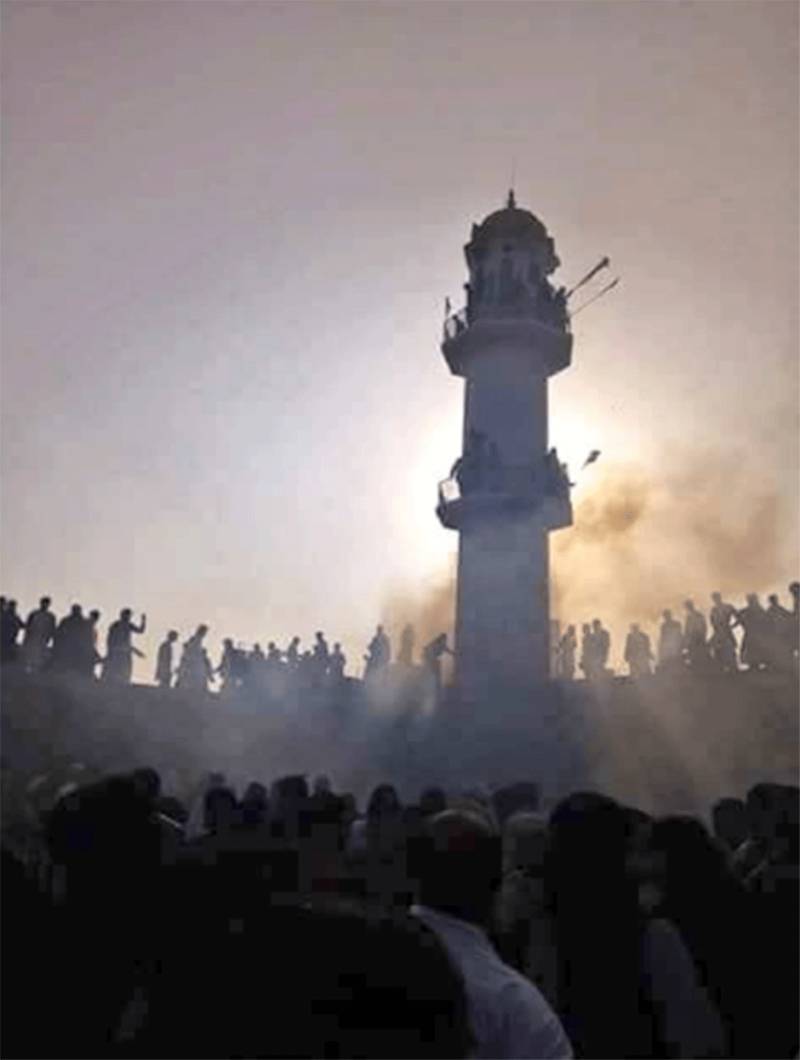One week after the Prime Minister decreed that Quaid-e-Azam University’s physics department be named after the Ahmedi scientist, Dr Abdus Salam, a mob of over a thousand people attacked an Ahmedi place of worship, built in 1860, which lead to the death of one worshiper, injuries to several people and widespread destruction of property – showing that the real problem cannot be solved by renaming a few scholarships.
The real test for the government’s commitment to minority protection begins now; how well can it protect the mosque in the future, how promptly it will arrest the perpetrators, and how seriously will it charge the people responsible.
Fortunately, the attack was not as deadly as it could have been and contingents of army and police personnel arrived to disperse the crowd, well after they had ransacked the mosque and barricaded themselves inside, however. This does not mean the incident is any less significant. The crowd gathered through a consistent campaign of hate speech and incitement, used automatic rifles to open fire on the structure – which lead to several injuries – and was prepared to take over the mosque by all manner of violence and bloodshed.
Fortunately for the police, the identity of the perpetrators is not a mystery. One week before the attack, a petition filed to the police by one Haji Malik Rashid Ahmad, and signed by over 500 people, warned the police of “dire consequences” if the mosque was not “liberated from the infidels” and handed over to them – this was the same group following up on that threat. The police now need to hold up that petition and arrest all those on it. There is also extensive video footage of the attack in progress, which shows individuals like Sunni Ittehad leader Ashraf Asif Jalali on the scene inciting violence against the Ahmedis. This is concrete evidence, which identifies attackers as well as instigators – the police has no excuse now not to do its sworn duty.
It must at least do that seeing how it failed to protect the mosque in the first place. The Ahmedi community of Chakwal sent a written request to the local police for extra security on this very day against this very same group of people who had been busy inciting hatred, yet their request was ignored and the consequence could be seen; the police milling about in the background as the mob continued destroying the historic mosque.
In any other country, in any other scenario, these police officials would be stripped of their uniform and tried for criminal negligence and dereliction of duty – the chances of that happening here are slim. The police can make amends though, it can arrest and convict all those who spread violence and hate on the commemoration of the Prophet’s (PBUH) life and his peaceful message.






